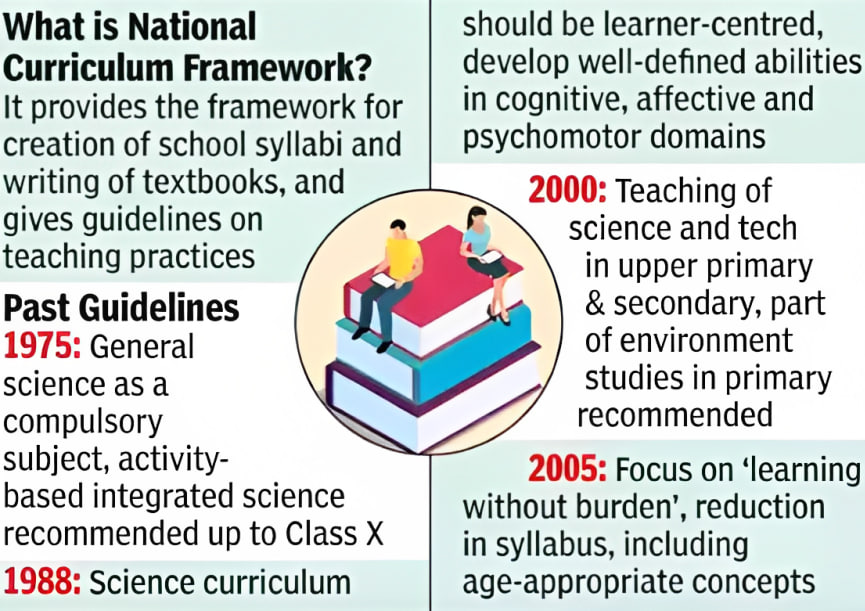Description

Copyright infringement not intended
Context: The Ministry of Education published a "pre-draft" version of the National Curriculum Framework for School Education.
Details
- The Ministry of Education published a "pre-draft" version of the National Curriculum Framework (NCF) for School Education. The curricular framework for age groups 3 to 18 is included in the pre-draft.
Values-based Education
- The inclusion of values is an important part of the document. According to the document, it is intended on familiarising students with authentic sources of knowledge, which have long been a philosophical focus of ancient Indians. These sources concentrate on six pramanas:
- Pratyaksa, which is perceived through the five senses.
- Anumana, which uses inferences to reach new conclusions.
- Upamana, which is knowing through analogy and comparison.
- Arthapatti, which is knowing through circumstantial implication.
- Sabda, which the document defines as "something one individual may only directly know a percentage of all reality via direct experience and inference but must rely on other specialists was recognised thousands of years ago."

Moral Development
- A part of this document focuses on a child's moral growth through panchakosha vikas or five-fold development. This is an old explanation of the relevance of the body-mind connection in human experience and comprehension.
- The pre-draft suggests instilling moral principles in children through a balanced diet, traditional activities, yoga asanas, and a wide range of stories, songs, lullabies, poetry, and prayers to foster a love of cultural context.
Subject to Study
- According to the pre-draft, students will need to study two key courses from the humanities, math and computers, vocational education, physical education, arts education, social science, science, and transdisciplinary fields for Grade 10 certification.
- Students in Grades 11 and 12 will be offered choice-based courses in the same fields.
- Music, dance, theatre, sculpture, painting, set design, and scriptwriting will be part of the arts education, while inter-disciplinary areas will incorporate knowledge of India, traditions, and practises of Indian knowledge systems.
Exam Pattern
- According to the document, "Modular Board Examinations will be provided as opposed to a single exam at the end of the year, and the final result will be based on cumulative result of each exam" for Class 11 and 12.

Must Read Articles:
National Curriculum Framework (NCF): https://www.iasgyan.in/daily-current-affairs/national-curriculum-framework
|
PRACTICE QUESTION
Q. The Union Education Ministry has released the National Curriculum Framework for foundational stage education of children aged three to eight years. That is a key step in implementing the New Education Policy 2020. Emphasize the importance of the National Curriculum Framework for Foundational Stage (NCF-FS) for education and children's general well-being.
|

https://epaper.thehindu.com/ccidist-ws/th/th_delhi/issues/31556/OPS/G4AB34J29.1+GVAB35302.1.html
Array
(
[0] => daily-current-affairs/national-curriculum-framework-for-schools
[1] => daily-current-affairs
[2] => national-curriculum-framework-for-schools
)














